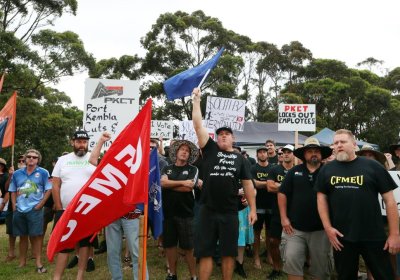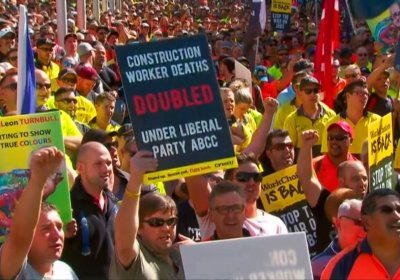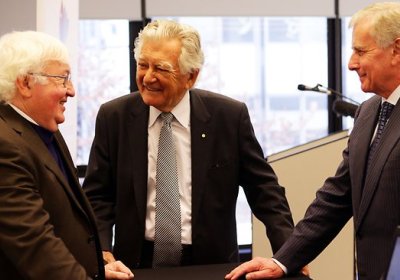A final version of the Trans-Pacific Partnership (TPP) free trade deal, which will reduce tariffs and other trade barriers between 11 countries in Asia and Latin America that amount to 13% of global GDP, was released on February 21.
Australian Council of Trade Unions (ACTU)
As the NSW Coalition government continues to lurch between a growing number of transport-related crises, a number of pro-public transport groups and the Rail, Tram and Bus Union (RTBU) are busy organising a “Fix NSW Transport” rally on February 17 in Sydney’s CBD.
The rally is a bold attempt to unite many transport-related campaigns across NSW and ensure that public transport remains a major election issue.
In response to the decision by the Fair Work Commission (FWC) to order Sydney train drivers to suspend their planned 24-hour strike on January 29, ACTU secretary Sally McManus declared: "The right to strike in Australia is close to being dead."
The Port Kembla Coal Terminal (PKCT), south of Wollongong, locked out its 58 permanent employees without pay for five days from January 7. The move is part of the company’s ongoing drive to force workers to accept cuts to their wages and conditions.
PKCT has been in negotiations with the Construction Forestry Mining and Energy Union (CFMEU) for a new agreement since 2015, when the previous enterprise agreement expired.
The Australian Manufacturing Workers Union (AMWU) launched its national boycott campaign against Streets ice cream products on October 29, urging people to “stand up for fairness and commit to a Streets-Free Summer”.
AMWU NSW secretary Steve Murphy said the workers had no choice but to call for a boycott after Streets “hit the nuclear option”.
In public debate “the thin end of the wedge” — the notion that once made, any penetration of the status quo will inevitably be followed by something greater — is an idiom invoked almost exclusively in the negative. It is an insufferable refrain of the perpetually fearful, the racist, the homophobic, the xenophobic, the Islamophobic, and the climate change-phobic.
It is one of former Prime Minister Tony Abbott’s favourite lines.
The Australian Council of Trade Unions launched its national “Change the Rules” campaign in Perth on September 21. The campaign seeks to push for pro-worker changes to the Fair Work Act.
ACTU secretary Sally McManus said: “We need to change the rules at work so working people can’t be held to ransom by bad employers who will use loopholes to cancel agreements, cut pay and slash conditions.”
The time has come to scrap the misnamed Fair Work Act (FWA) and introduce genuine pro-worker and pro-union industrial relations legislation in this country.
Rising pressure on federal employment minister Michaelia Cash to resign over her cover-up of the illegal actions by former Australian Building and Construction Commission (ABCC) head Nigel Hadgkiss merely underlines the fact that Australia’s industrial relations system is badly broken.
The historical and current injustices following the establishment of industry superannuation and the subsequent undermining of this important social policy initiative needs to be scrutinised.
Today’s crisis of the established political parties and the rise of far-right political projects are linked to the long-running capitalist crisis in which neoliberalism is immiserating the working class and small producers.
The recent Fair Work Commission (FWC) decision to cut penalty rates for weekends and public holidays will deliver a windfall to big retail and hospitality bosses, while slashing the wages of about 700,000 low-paid workers.
Figures released by the ACTU put the average worker in accommodation and food services on only $524 a week and those in retail on just $687. Contrast this with the average pay of $1163 for all Australian workers and you can see just how draconian FWC’s decision is.
The misnamed Fair Work Commission’s (FWC) decision on February 23 to cut penalty rates will hit hundreds of thousands of casual and part-time workers. But women will fare worse because the gender pay gap continues.
The employer’s argument, that penalty rates prevent them from hiring and remaining open on Sundays, is disproved by the facts. Australian Bureau of Statistics (ABS) figures show that despite the mining boom slow down, the retail and hospitality sectors are booming.
- Previous page
- Page 9
- Next page











